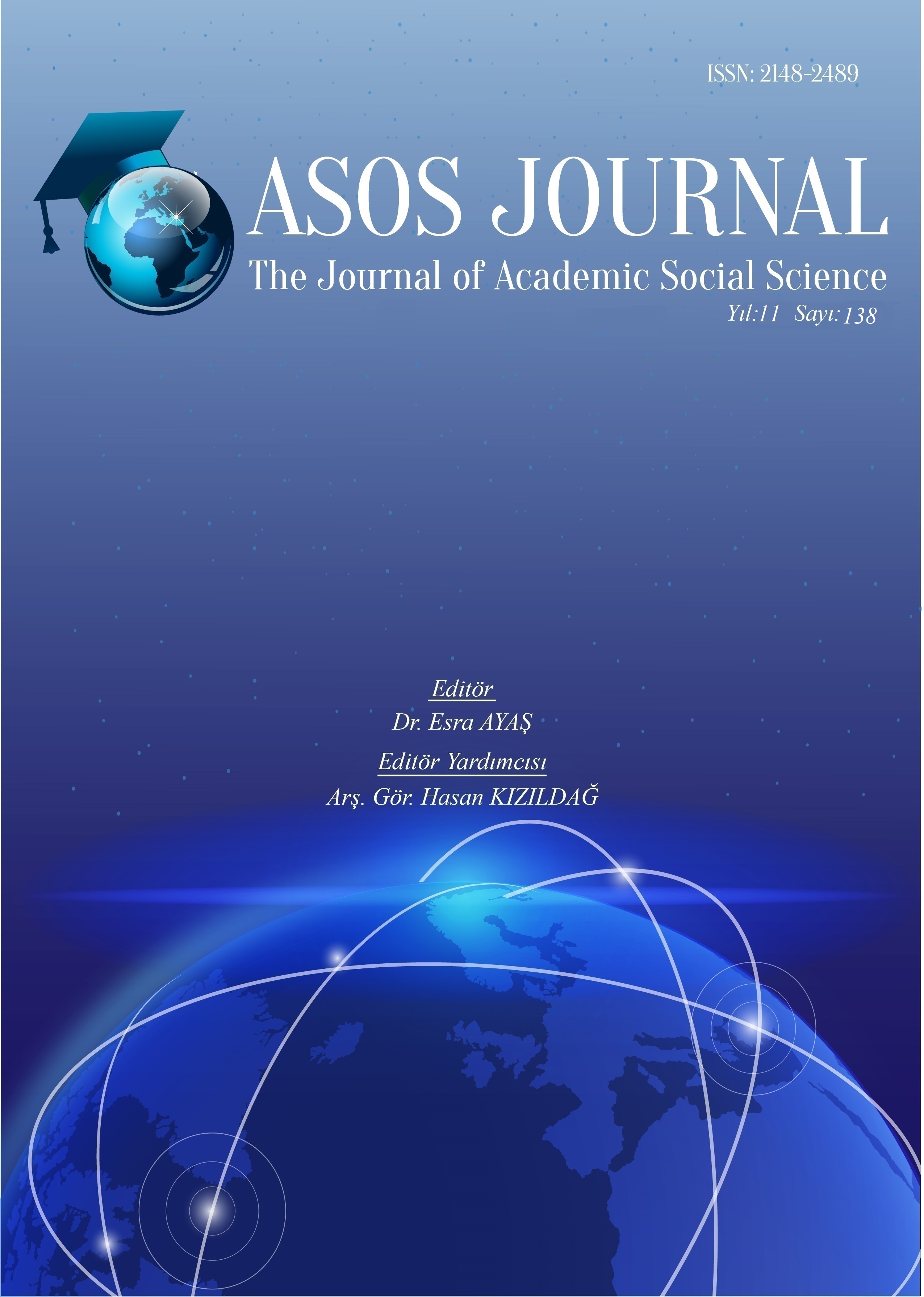Author :
Abstract
- yüzyıl yeni iletişim teknolojilerinde yaşanan gelişmelere paralel olarak konvansiyonel diplomatik uygulamaları değiştiren ve dönüştüren bir çağ olarak ön plana çıkmaktadır. Son dönemlerde uluslararası bütünleşme süreciyle farklı ulusların ürettiği kültürel değerleri, küreselleşen çeşitli ülkelerin uluslarına sunmalarıyla kültürel diplomasi fonksiyonlarının devletler tarafından işlerlik kazandığı görülmektedir. Geleneksel diplomatik hamlelerin ötesinde farklı bir uygulama alanına dönüşen “kültürel diplomasi” devletlerin kendi bakış açısıyla doğru gördüğü doktrinlerini diğer ülke ve uluslara sunması itibariyle anlamlı hale gelmektedir. Bu bağlamda kültürel diplomatik faaliyetler ekseninde öğrenci değişimleri, edebi eserler, müzik, sinema, sanat, televizyon ve ülkelerin yurtdışındaki kültürel temsilcilikleri gibi mecralarda kültürel diplomatik faaliyetler yürütülmektedir. Türkiye Cumhuriyeti Devleti, TİKA ve Yunus Emre Enstitüleri gibi yurtdışında faaliyet gösteren kültürel kurumların dışında da farklı uygulamalar yürütmektedir. Çalışma, bu minvalde Türkiye Cumhuriyeti Devleti’nin son yıllarda yürütmüş olduğu kültürel diplomatik faaliyetler çerçevesindeki tarihi Türk dizilerini ele almaktadır. Yüz elli ülkeye ihracatıyla en fazla ihraç edilen tarihi Türk dizileri konumunda bulunan Diriliş Ertuğrul (2015-2019) ve Kuruluş Osman’ın (2020-) Arnavutluk’taki ve Kosova’daki yayıncı kuruluş olan Klan TV ve Klan TV Plus özelindeki sezon fragmanları çalışmanın konumlanma noktasını oluşturmaktadır. Bu çalışma Osmanlı İmparatorluğu’ndan günümüz Türkiye Cumhuriyeti’ne kadar kültürel bağların süregeldiği bir coğrafyada, bahsedilen televizyon kanallarının iki tarihi Türk dizisi bağlamında yayınladıkları sezon fragmanlarını esas almaktadır. İthal menşeili ülke dizileri konumunda bulunan tarihi Türk dizi fragmanları, ilgili ülke kanalları tarafından sezon bazında yeniden tasarlanarak yayınlanmaktadır. Bu yayınlanan fragmanlar Türkiye kanallarındaki fragmanlardan farklı olarak ilgili ülkelerin kültürel tercihlerinin göstergesi olabilmektedir. Buradan hareketle çalışmada Arnavutluk’taki ve Kosova’daki bahsedilen kanalların Türk mitolojisi ağırlıklı sahneleri tercih ederek halkına sunduğu dizilerin fragman kodlarına odaklanılmaktadır. Çalışmada yayıncı kuruluşlar tarafından yeniden üretilen bu kodların Türkiye Cumhuriyeti’nin yürütmüş olduğu “kültürel diplomatik faaliyetler” eksenindeki yeri ve “kültürel diplomasiye” katkıları ilgili sezon fragmanlarının göstergebilimsel analize tabi tutulmasıyla ortaya konulmaya çalışılmıştır.
Keywords
Abstract
The 21st century stands out as an era that changes and transforms conventional diplomatic practices in parallel with the developments in new communication technologies. It is seen that the cultural diplomacy functions have become functional by the states, with the presentation of the cultural values produced by different nations through the international integration process to the nations of various globalizing countries. “Cultural diplomacy”, which has turned into a different field of application beyond traditional diplomatic moves, becomes meaningful as states present their doctrines, which they see as correct, to other countries and nations. In this context, cultural diplomatic activities are carried out in media such as student exchanges, literary works, music, cinema, art, television and cultural representations of countries abroad. The Republic of Turkey also carries out different practices apart from cultural institutions operating abroad such as TIKA and Yunus Emre Institutes. In this context, the study deals with historical Turkish TV series within the framework of cultural diplomatic activities carried out by the Republic of Turkey in recent years. The season trailers of Dirilis Ertugrul (2015-2019) and Kurulus Osman (2020-), the broadcaster in Albania and Kosovo, Klan TV and Klan TV Plus, which are the most exported historical Turkish series with their exports to one hundred and fifty countries, are the positioning of the study. forms the point. This study is based on the season trailers broadcast by the mentioned television channels in the context of two historical Turkish series in a geography where cultural ties continue from the Ottoman Empire to the present Turkish Republic. Historical Turkish TV series trailers, which are country series of imported origin, are redesigned and broadcast by the relevant country channels on a seasonal basis. These broadcast trailers can be an indicator of the cultural preferences of the relevant countries, unlike the trailers in Turkish channels. From this point of view, the study focuses on the fragment codes of the TV series that the mentioned channels in Albania and Kosovo present to their people by preferring Turkish mythology-based scenes. In the study, the place of these codes reproduced by broadcasting organizations in the axis of "cultural diplomatic activities" carried out by the Republic of Turkey and their contribution to "cultural diplomacy" have been tried to be revealed by subjecting the relevant season fragments to semiotic analysis.





